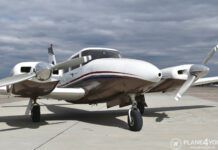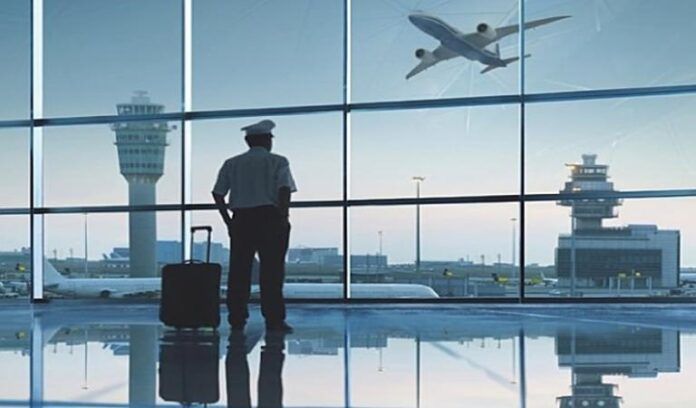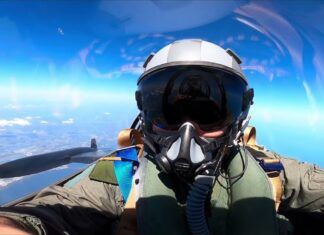NTSB officials and panelists at a summit Wednesday on pilot mental health said they were optimistic the issue would be addressed by the aviation community. Speaking at the daylong meeting held by the NTSB in Washington, speakers pressed home the need to allow pilots with mental health issues safe ways to seek treatment for their illnesses.
Yesterday’s summit comes a day after the Federal Aviation Administration (FAA) announced the creation of its new rulemaking committee focused on the same topic. Discussions during the summit highlighted the lack of trust pilots, controllers and other aviation professionals have regarding repercussions for seeking and reporting help for mental health-related issues.
As reported by The Hill, NTSB Chair Jennifer Homendy said a “culture of silence” was affecting safety in the industry. In her opening remarks, Homendy noted, “No one … no one … should have to think twice about their job before seeking help. And yet, we’re here today because that’s not currently the case in U.S. aviation.”
NTSB Vice Chairman Bruce Landsberg also spoke on the struggles he faced following the death of his son, who served in the military and died of PTSD, according to CNN. Landsberg said he self-grounded, though he did not report it to the FAA, and waited weeks until he felt ready to return to flying.
Meanwhile the FAA has acknowledged it is open to revising mental health policies, with its committee expected to provide recommendations by March 30, 2024.



































To be anything other than “silent” puts one at risk.
Yup, ATC professional are under the same risk. Medical standards for both Aircrew and ATC needs a severe overhaul.
Its the government’s modus operandi. Create a problem then try to solve it and promote yourselves for the effort.
It’s not so much “the governments’s modus operandi” as it is quack AMEs who because of their crackpot religio-ideologies have disabled themselves to the point of being incapable of being enough a part of the system to work with it and make it work. $#!T or get off the physician/AME pot and go away.
It’s better to pee from inside the tent looking out than outside the tent looking in.
According to the article on the publication The Hill, looks like the NTSB did not come up with a solution. What a waste of time and taxpayer dollars!
Takeaways from the NTSB summit on mental health in aviation:
1. Culture of silence: There is a culture of silence surrounding mental health in the aviation industry, with pilots, mechanics, air traffic controllers, and others underreporting their use of mental health care and medication.✅
2. Safety risk: This culture of silence poses a safety risk. The fear of disclosing mental health struggles can prevent individuals from seeking the help they need, which could lead to serious consequences. ✅
3. Stigma: The stigma surrounding mental health is a major barrier to disclosure. People fear losing their professional identity, livelihood, and facing discrimination if they come forward.✅
4. Pandemic impact: The pandemic has exacerbated the mental health challenges faced by aviation professionals. Staff shortages, mandatory overtime, and less opportunity for training have all contributed to increased stress and anxiety.✅
5. FAA action: The FAA has announced the creation of a new committee to address these issues and find ways to encourage pilots and air traffic controllers to seek help for mental health concerns.🤔🤔
6. First-person accounts: The summit heard from individuals who have personally experienced mental health struggles or have had family members who have. These stories highlight the importance of addressing this issue.🤔🤔
7. Pilot case: The incident involving an off-duty Alaska Airlines pilot who allegedly attempted to turn off a plane’s engines mid-flight further underscores the need for better mental health support in the aviation industry.✅
8. Next steps: The FAA’s committee is expected to submit its recommendations by the end of March 2024. This is a crucial step in creating a safer and more supportive environment for all aviation professionals. 🤞🤞
#5 is a pipe dream and will never happen.
Ah, another committee. We’re all saved, then. /sarc
‘Its the government’s modus operandi. Create a problem then try to solve it and promote yourselves for the effort.’
You meant to say ‘our’ government, right? The same one we the people voted for?
Establishing a ‘safe zone of victimhood’ by shouting from a place of bravery, out of range of the effort needed to implement, adapt, overcome, and conquer obstacles that seem overwhelming from our government, our FAA, is sadly pathetic.
Why have you and so many others here allowed your government turn you into hapless victims? The whining about congress critters, not my administrations’ efforts, our FAA – oh mommy, help us, we’re dying out here.
If we’re so inept, should we blame the founding fathers? How about the Articles of Confederation, or the US Constitution? Are they to blame for not describing how to run our own government when power and greed eventually creep in? No one planned for it?
I spent plenty of time working in and around government in my career in the mental health field and never once felt a victim of anything it had to say or want to do. In this area of mental health awareness for aviation personnel now in focus, especially for pilots, the NTSB and others making a concerted effort to try and get the issue recognized and addressed finally is damn noble work, and an excellent use of ‘taxpayer dollars’. Now the FAA needs to get going and read the room to put an end to the ego-driven stigma of mental health as weakness. It’s way past time.
Thank you Dave. I completely agree! Supporting the mental health of our aviation community is most important. The NTSB deserves praise for supporting this critical issue. Now, it’s extremely important for the FAA to act and address the harmful stigma surrounding mental health without falling into the “problem-solution-self-promotion” cycle. This isn’t and should not be allowed to be a political game; it’s a human issue demanding real solutions for the well-being of all.
And thanks for your always erudite research and commentary, Raf.
Here’s to greater freedom for all aviation professionals needing help without fear of reprisal and condemnation!
It’s entertaining; it keeps me busy and informed. I just need to find a way to retain all I read. I hope they don’t take my computer away from me. 😊
Lesser mental health is a weakness.
Take two otherwise equal people. One with good mental health. One with poor mental health.
The person with good mental health should be more fit for purpose.
This is just plain wrong and is an ignorant and harmful assertion. This is exactly the sort of stigma that needs to be dispelled.
Depression, anxiety, and panic attacks ARE NOT signs of weakness, they are signs of beiing too strong for too long. I can tell you from personal experience, most mental health issues are the product of having to be the responsible person in an environment where you are surrounded by several people who become dependent on you. Based on your comment I seriously doubt that you would understand what true strength is.
Go touch grass.
You can see where this is heading. Every six months to get your First Class Medical sign-off you first need to visit your therapist for a sign-off.
Does anyone know a good Designated Shrink (DS)?
What does the ink splotch 🗯️ look like to you?
Let’s all hope that the FAA’s efforts to address mental health issues produce more results than their interminable “efforts” to find a suitable unleaded Avgas. 😑
🤔I see your strength in facing these challenges. Taking steps toward your mental health is a positive and courageous choices as your statement appears to express a level of frustration or skepticism about the effectiveness of the Federal Aviation Administration’s (FAA) efforts. I believe we can work together to find solutions and improve your well-being.😊
In five years there will be a new field called aviation psychology and pilots will have to pay $300 every year and do a carpet dance for some psych to keep our jobs.
Culture of “silence”, culture of “judgment”, culture of “condemnation”, culture of “perfection”, culture of “mob mentality”, culture of “bullying” and much more…
Is this a problem in aviation? LOL
This is a problem spread to the whole society. But not me. I am perfect. Problems? I don’t have any! I came from the “puritanism” culture. Perfect! LOL
I have zero confidence that our woke government can do anything to help pilots that are struggling with mental health. They will just come up with more rules and training, that will only jeapoprdize a pilots willingness to seek help.
The best source of help for a pilot is his fellow pilots, working thru their union where there is some trust and empathy.
When the government tries to solve a problem, beware.
The biggest problem i see is the possibility of only FAA-approved methods of treatment for mental health issues. Some treatment options may be very effective for some people, not so much for others. The bottom line is that the person with the issue is always the one doing the work.